Search
Search Results
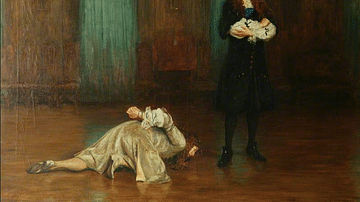
Definition
Monmouth Rebellion
The Monmouth Rebellion of June-July 1685 involved James Scott, Duke of Monmouth (1649-1685), illegitimate son of Charles II of England (r. 1660-1685), attempting to take the throne of his uncle James II of England (r. 1685-1688). Monmouth's...

Definition
Stirling Castle
Stirling Castle, located on a strategically important rocky outcrop by the River Forth in central Scotland, was a key royal residence from the late 11th century into the early modern period and subject to many battles and sieges, particularly...
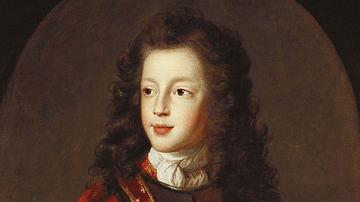
Image
James Francis Edward Stuart
A portrait of James Stuart, son of James II of England. Known later as the Old Pretender because he claimed the throne abdicated by his father, James was born on 10 June 1688, and the arrival of a Catholic heir was one of the causes of the...
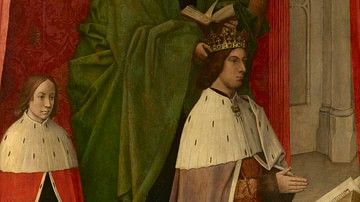
Image
James III of Scotland with St. Andrew
A c. 1480 painted panel from an altarpiece by Hugo van der Goes showing Saint Andrew presenting James III of Scotland (r. 1460-1488). On the left is James' son, future James IV of Scotland (r. 1488-1513). National Gallery of Scotland, Edinburgh...
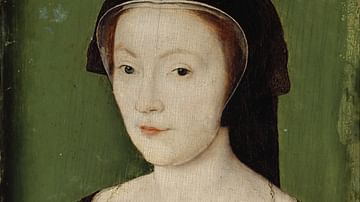
Definition
Mary of Guise
Mary of Guise (aka Marie de Lorraine, 1515-1560) was a French noblewoman who became the second wife of James V of Scotland (r. 1513-1542). With the premature death of her husband, her daughter Mary, Queen of Scots (r. 1542-1567) became queen...
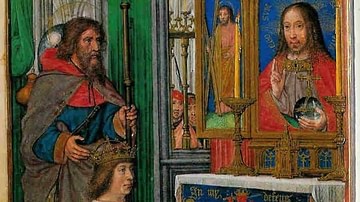
Image
James IV of Scotland Kneeling in Prayer
A c. 1502 parchment illustration showing James IV of Scotland (r. 1488 to 1513 CE) kneeling in prayer to an altarpiece. Behind him is Saint James. (Hours of James IV of Scotland, Austrian National Library, Vienna)
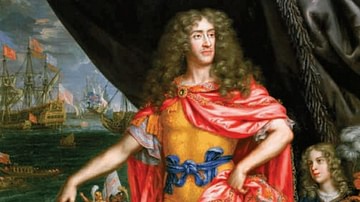
Image
James, Duke of York
A c. 1672 painting by Henri Gascar of James, Duke of York, (1633-1701). James is shown in characteristic martial pose - specifically the Roman god of war Mars - and drawing on classical imagery. James served as Lord High Admiral, hence the...

Article
Rabbit Tales of the Cherokee
In the lore of the Cherokee nation, the rabbit is a trickster figure living by its wits, who sometimes outsmarts adversaries or predators and sometimes is defeated by them, though, even in defeat, the rabbit usually escapes. The rabbit symbolizes...

Article
Tsul'kălû', The Slant-Eyed Giant
Tsul'kălû', The Slant-Eyed Giant is a myth of the Cherokee nation and is among the most popular. The legend relates the story of the great giant, Tsul'kălû', his marriage to a Cherokee maiden, and how the people broke trust with him so that...
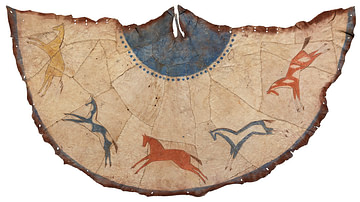
Article
Cheyenne Afterlife
The Cheyenne afterlife is envisioned as a continuation of life on earth. The spirit leaves the body and travels the long road of the Milky Way to arrive at a village very like what one has always known and is greeted by those who have gone...